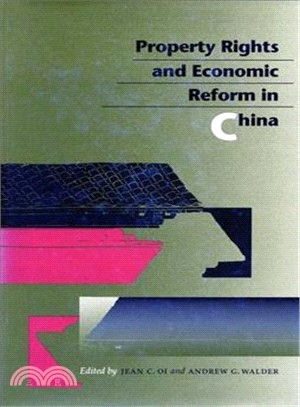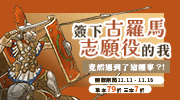Property Rights and Economic Reform in China
商品資訊
ISBN13:9780804737883
出版社:Stanford Univ Pr
作者:Jean C. Oi (EDT); Andrew G. Walder (EDT)
出版日:1999/08/01
裝訂/頁數:平裝/324頁
規格:22.2cm*14.6cm*1.9cm (高/寬/厚)
商品簡介
相關商品
商品簡介
China’s rapid economic growth during the past two decades has occurred without the systematic privatization programs once urged upon the former Communist regimes of Europe and the USSR. Some observers have argued that this shows that changes in property rights are not important in reforming a command economy; others insist that in China a facade of public ownership hides a variety of ownership forms that are essentially private in nature. This volume seeks to adjudicate these opposing views by clarifying conceptually and factually the pattern of property rights changes in the contemporary Chinese economy.
The contributors to this volume, from the fields of anthropology, economics, political science, and sociology, have all conducted fieldwork in China on specific economic sectors or enterprise types. Working with a common definitional framework derived from the work of the institutional economist Harold Demsetz, they seek to establish which actors exercise what kinds of rights in practice over what kinds of economic assets, documenting changes through time. Most of the essays examine the rural industrial economy—the fastest-growing sector—or the “spin-off” economic enterprises and activities of public enterprises and institutions.
The research presented in this volume supports several specific conclusions. First, industrializing rural regions have emerged with diametrically opposed property rights regimes: in one kind of region public ownership only marginally different in form from that of the Mao years has predominated; in other regions wholly new forms of private household and foreign-funded enterprise have arisen. Second, the regimes of all the examined regions and sectors have evolved continually since the outset of reform, and in recent years change has accelerated because of the increased pressures of competitive markets. Third, in the evolution of property rights the distinction between public and private is not crucial in differentiating the key arrangements; instead, a more finely differentiated set of gradations from “public” to “private” prove central to the story of the Chinese economy.
The contributors to this volume, from the fields of anthropology, economics, political science, and sociology, have all conducted fieldwork in China on specific economic sectors or enterprise types. Working with a common definitional framework derived from the work of the institutional economist Harold Demsetz, they seek to establish which actors exercise what kinds of rights in practice over what kinds of economic assets, documenting changes through time. Most of the essays examine the rural industrial economy—the fastest-growing sector—or the “spin-off” economic enterprises and activities of public enterprises and institutions.
The research presented in this volume supports several specific conclusions. First, industrializing rural regions have emerged with diametrically opposed property rights regimes: in one kind of region public ownership only marginally different in form from that of the Mao years has predominated; in other regions wholly new forms of private household and foreign-funded enterprise have arisen. Second, the regimes of all the examined regions and sectors have evolved continually since the outset of reform, and in recent years change has accelerated because of the increased pressures of competitive markets. Third, in the evolution of property rights the distinction between public and private is not crucial in differentiating the key arrangements; instead, a more finely differentiated set of gradations from “public” to “private” prove central to the story of the Chinese economy.
主題書展
更多
主題書展
更多書展今日66折
您曾經瀏覽過的商品
購物須知
外文書商品之書封,為出版社提供之樣本。實際出貨商品,以出版社所提供之現有版本為主。部份書籍,因出版社供應狀況特殊,匯率將依實際狀況做調整。
無庫存之商品,在您完成訂單程序之後,將以空運的方式為你下單調貨。為了縮短等待的時間,建議您將外文書與其他商品分開下單,以獲得最快的取貨速度,平均調貨時間為1~2個月。
為了保護您的權益,「三民網路書店」提供會員七日商品鑑賞期(收到商品為起始日)。
若要辦理退貨,請在商品鑑賞期內寄回,且商品必須是全新狀態與完整包裝(商品、附件、發票、隨貨贈品等)否則恕不接受退貨。
























